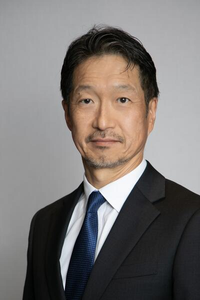Recruiting and Retaining Women in Hepatology: Essential Strategies for Division Chiefs and Academic Leaders
Nov
10
2025
Convention Center: Room 201, Level 2
3:45 PM
- 4:45 PM
World Class Speakers
Description
As the majority of transplant hepatology trainees are women, it is essential to focus on recruiting and retaining this talented group to ensure a thriving hepatology division. Evidence highlights that workplace bias, family-unfriendly work environments, and gender pay inequities are significant challenges that need to be addressed. This community conversation begins with a brief expert review of the evidence behind workplace gender inequities and exploration of successful structural solutions. A diverse panel—including division chiefs with successful recruitment records, a female fellow trainee, an early-career female physician, and a mid-career female physician—then share their experiences with fellowship applications and job searches.Presentations
3:45 PM
- 4:05 PM
Nov
10
2025
Washington, D.C.
Factors Impacting Retention and Recruitment of Women in Hepatology
Lauren D. Feld, MD
, Presenter
Acute Liver Failure
Acute-on-Chronic Liver Failure
ALD
Basic Science
Cirrhosis and Portal Hypertension
DEI
Drug-Induced Liver Injury
Hepatitis
Hepatology Associates
Liver Cancer
MASLD
Pediatrics
Trainee
Transplant
4:05 PM
- 4:15 PM
Nov
10
2025
Washington, D.C.
Chief Perspective on Recruitment and Retention of Women in Hepatology, Panel Discussion
Patrick Northup, MD, FAASLD
, Panelist
Acute Liver Failure
Acute-on-Chronic Liver Failure
ALD
Basic Science
Cirrhosis and Portal Hypertension
DEI
Drug-Induced Liver Injury
Hepatitis
Hepatology Associates
Liver Cancer
MASLD
Pediatrics
Trainee
Transplant
4:15 PM
- 4:25 PM
Nov
10
2025
Washington, D.C.
Chief Perspective on Recruitment and Retention of Women in Hepatology, Panel Discussion
Tamar H Taddei, MD, MD, FAASLD
, Panelist
Acute Liver Failure
Acute-on-Chronic Liver Failure
ALD
Basic Science
Cirrhosis and Portal Hypertension
DEI
Drug-Induced Liver Injury
Hepatitis
Hepatology Associates
Liver Cancer
MASLD
Pediatrics
Trainee
Transplant
4:25 PM
- 4:35 PM
Nov
10
2025
Washington, D.C.
Chief Perspective on Recruitment and Retention of Women in Hepatology, Panel Discussion
Rotonya M. Carr, MD, FACP, FAASLD
, Panelist
Acute Liver Failure
Acute-on-Chronic Liver Failure
ALD
Basic Science
Cirrhosis and Portal Hypertension
DEI
Drug-Induced Liver Injury
Hepatitis
Hepatology Associates
Liver Cancer
MASLD
Pediatrics
Trainee
Transplant
4:35 PM
- 4:45 PM
Nov
10
2025
Washington, D.C.
Chief Perspective on Recruitment and Retention of Women in Hepatology, Panel Discussion
W. Ray Kim, MD, FAASLD
, Panelist
Acute Liver Failure
Acute-on-Chronic Liver Failure
ALD
Basic Science
Cirrhosis and Portal Hypertension
DEI
Drug-Induced Liver Injury
Hepatitis
Hepatology Associates
Liver Cancer
MASLD
Pediatrics
Trainee
Transplant
5:57 AM
- 5:57 AM
Nov
10
2025
Washington, D.C.
Chief Perspective on Recruitment and Retention of Women in Hepatology, Panel Discussion
Naudia Jonassaint, MD, MHS, MBA
, Panelist
Acute Liver Failure
Acute-on-Chronic Liver Failure
ALD
Basic Science
Cirrhosis and Portal Hypertension
DEI
Drug-Induced Liver Injury
Hepatitis
Hepatology Associates
Liver Cancer
MASLD
Pediatrics
Trainee
Transplant
5:57 AM
- 5:57 AM
Nov
10
2025
Washington, D.C.
Female Trainee Perspective on Recruitment and Retention of Women in Hepatology, Panel Discussion
Lisa X Deng, MD
, Panelist
Acute Liver Failure
Acute-on-Chronic Liver Failure
ALD
Basic Science
Cirrhosis and Portal Hypertension
DEI
Drug-Induced Liver Injury
Hepatitis
Hepatology Associates
Liver Cancer
MASLD
Pediatrics
Trainee
Transplant
Objectives
- Review the evidence on the impact of workplace bias, gender pay disparities, and lack of parental leave on the hepatology workforce.
- Discuss structural solutions to reduce workplace bias and gender pay disparities, and create family-friendly work environments to improve hepatology workforce recruitment and retention.
- Describe successful advocacy strategies for individuals and their colleagues to create a fair and sustainable work environment.






